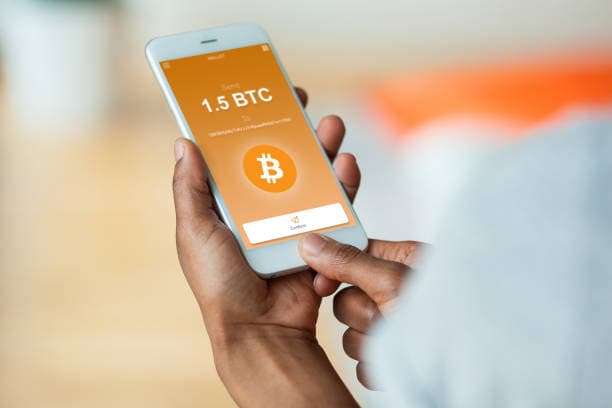Is Bitcoin virtual or real, and which country issued it?
Have you ever wondered whether Bitcoin is virtual or real? Which country issued it? These questions are not only frequently asked by people who are new to cryptocurrency, but also often overlooked or misunderstood in this era of rapid development of digital currencies. Today, let's clear up these doubts and get to know the truth behind Bitcoin.

Is Bitcoin virtual or real?
When many people first hear about Bitcoin, they think of it as something virtual, or even as something that only exists on a computer screen. In fact, Bitcoin is a virtual digital currency and does not have a physical form like paper money. It is a decentralized currency built on blockchain technology, which means it is not controlled by any country or central authority. Bitcoin transactions are conducted through a global network of computers and utilize encryption technology to ensure that transactions are secure and transparent.
Even though Bitcoin has no physical form, it can still circulate in the real world and has exchange value. Many merchants and trading platforms have begun to accept Bitcoin as a payment tool, transforming it from a purely virtual asset to a digital currency with real-world applications. Therefore, although Bitcoin itself is a virtual currency, its influence and application value in the real world should not be overlooked.
The Issuance and Founder of Bitcoin
The founder of Bitcoin is a mysterious figure or organization called Satoshi Nakamoto, who released the Bitcoin White Paper in 2008 and officially released the Bitcoin software in 2009. To this day, the true identity of Satoshi Nakamoto has yet to be revealed, making the story of Bitcoin all the more mysterious and intriguing. Bitcoin is not issued by any single country or government, but was born out of dissatisfaction with the traditional financial system and the need for a decentralized payment system.
Bitcoin was designed to create a decentralized, borderless, and government-uncontrolled currency, a characteristic that makes it independent of any one country. In fact, Bitcoin is not regulated or interfered with by any government or national central bank. This is one of the reasons why Bitcoin is so popular with many investors who are looking for a free market and privacy protection.
The decentralized nature of Bitcoin
The decentralized nature of Bitcoin is one of the biggest differences between it and the traditional monetary system. In a traditional financial system, the issuance and management of money is usually controlled by the central bank or government of each country. The operation of Bitcoin does not depend on any centralized organization; it is managed through a distributed blockchain network. The blockchain is a public distributed ledger where all Bitcoin transactions are recorded and encrypted, ensuring the authenticity and security of each transaction.

In Bitcoin's blockchain network, tens of thousands of nodes (i.e., users' computers) work together to maintain the system, which means that no single organization is able to control the issuance or trading of Bitcoin on its own. This decentralized design not only ensures that Bitcoin's operation is free from interference by any government or central authority, but also makes Bitcoin more resistant to censorship and anti-censorship.
Security and Transparency in Blockchain Technology
Bitcoin's blockchain technology not only guarantees decentralized operation, but also provides an extremely high level of security and transparency. Each Bitcoin transaction is recorded in a block, and each block is linked to the previous block to form a continuous record of transactions. This makes Bitcoin transactions difficult to tamper with or reverse, thus effectively preventing fraud.
The public nature of the Bitcoin blockchain allows all transactions to be queried and verified. Although Bitcoin transactions are anonymous, the details of each transaction, including the sender, receiver, and amount of the transaction, can be viewed publicly on the blockchain, which enhances the transparency of the entire system and increases users' trust in Bitcoin.
Bitcoin's Global Impact and Real-World Applications
Although Bitcoin was originally created as a decentralized payment tool, it has become more than just a digital currency. As the market has evolved, Bitcoin has come to be seen as a store of value, with many investors using it as a tool to combat inflation. Bitcoin's price is highly volatile, but its potential for long-term appreciation has attracted a large number of institutional and individual investors.
Not only that, but more and more merchants and service providers are accepting Bitcoin as a form of payment. From online gaming, to online shopping centers, to brick-and-mortar stores, Bitcoin has been gradually integrated into the mainstream economy. This phenomenon has transformed Bitcoin from a "virtual currency" into a payment tool with real-world applications.
Advantages and Challenges of Bitcoin as a Payment Method
One of the advantages of Bitcoin as a payment tool is the low cost and fast processing speed of transactions. While traditional cross-border payments usually take several days to complete and can involve high fees, Bitcoin transactions can be completed in minutes with relatively low fees. This makes Bitcoin an ideal choice for cross-border transactions.
While Bitcoin shows great potential for global payments, it also faces many challenges. Bitcoin's high price volatility makes it unstable and unsuitable for use as a tool for everyday transactions. Bitcoin's transaction processing speed needs to be improved, especially during peak hours when transaction delays can be long. Different countries have different regulatory policies on cryptocurrencies, which may also affect the popularity and adoption of Bitcoin.
Frequently Asked Questions Q&A
Q1: Which country issues Bitcoin?
Bitcoin is not issued by any country, it is a decentralized digital currency created by an anonymous person or group named Satoshi Nakamoto. The operation of Bitcoin is not controlled by any government or central bank.
Q2: Why is Bitcoin considered a virtual currency?
Bitcoin is a currency with no physical form and exists only in the digital world. All transactions and asset transfers rely on blockchain technology and are not controlled by any national government or centralized agency.
Q3: Can Bitcoin be used in the real world?
Yes, even though Bitcoin is a virtual currency, it has been accepted by many merchants and service providers around the world and can be used for real-world transactions such as purchasing goods and transferring money across borders.














